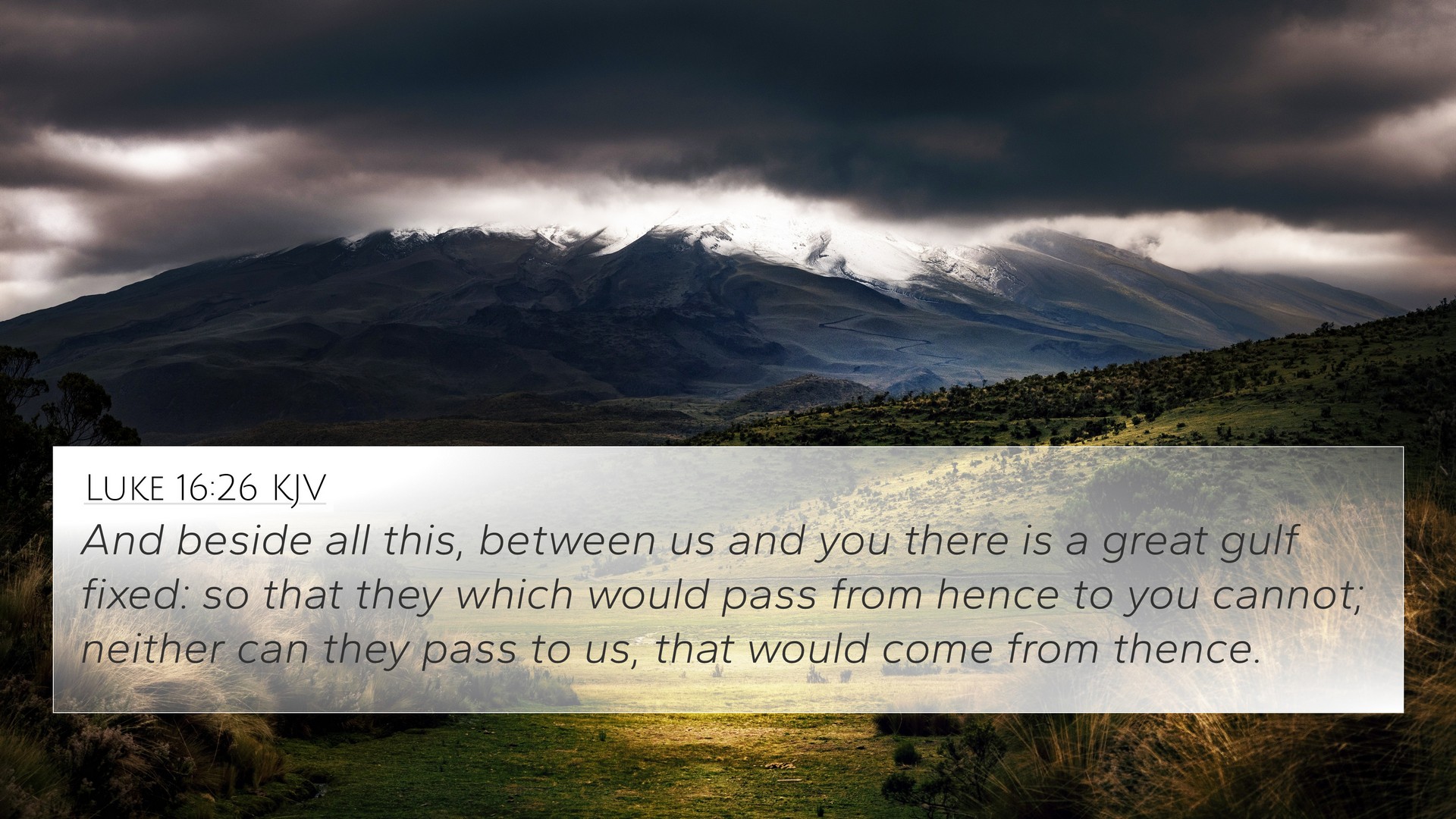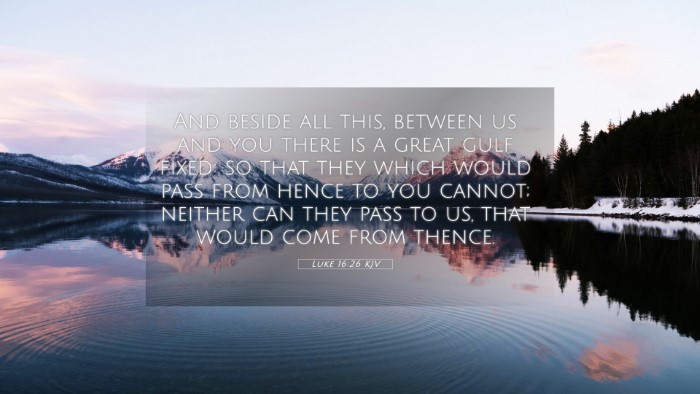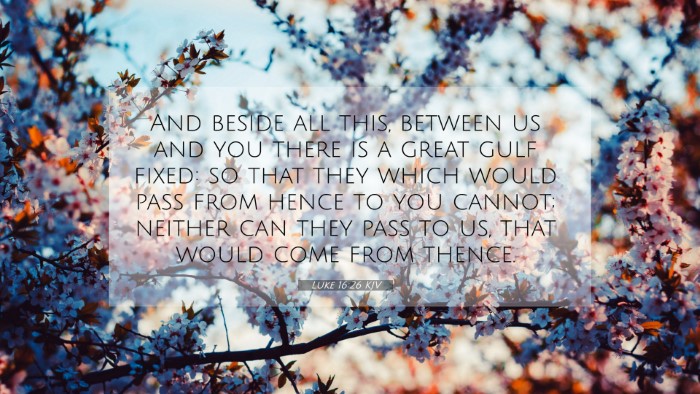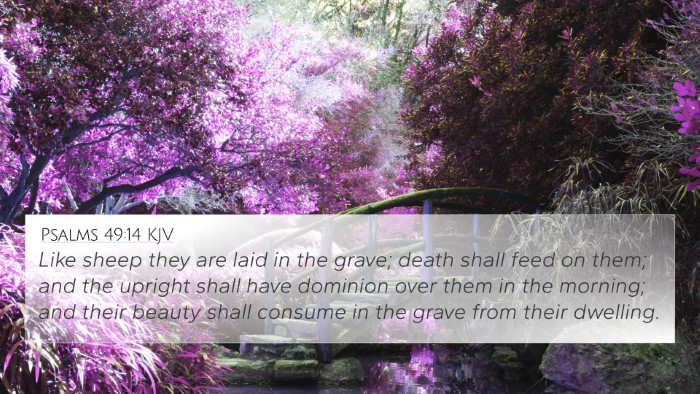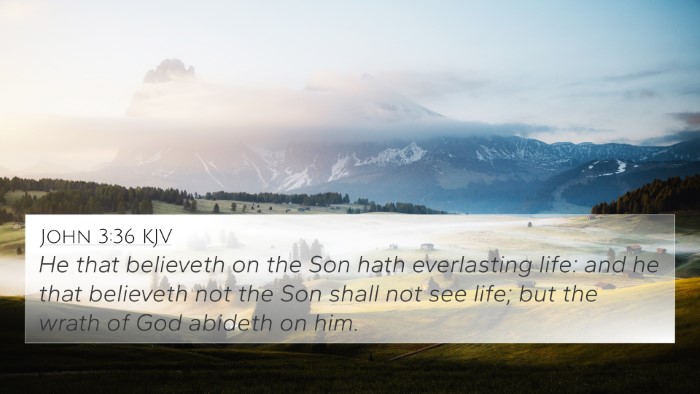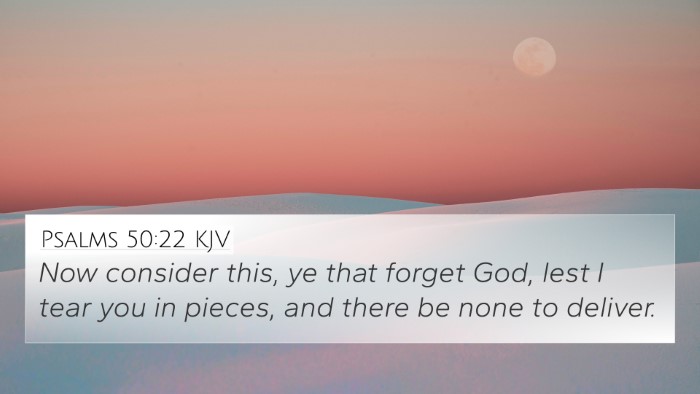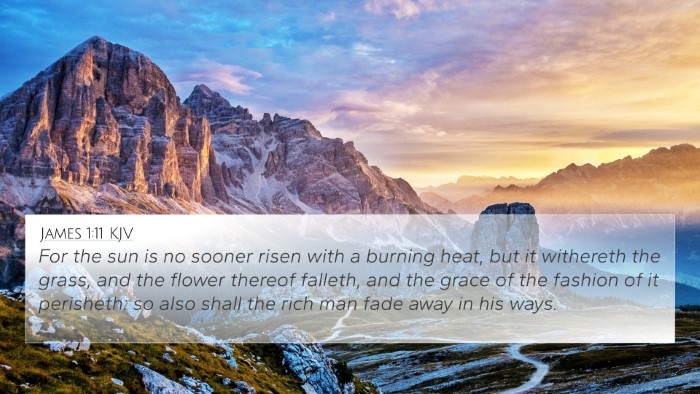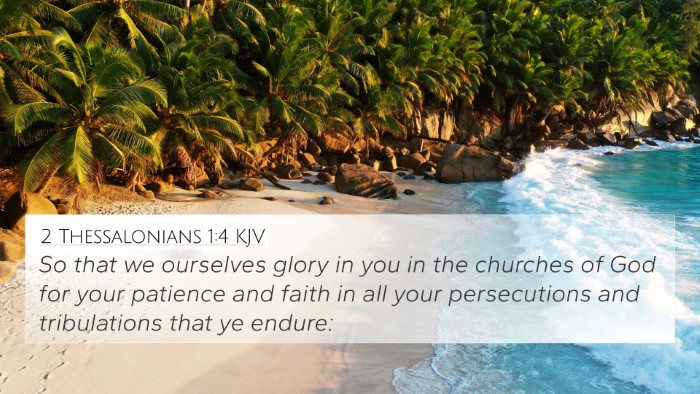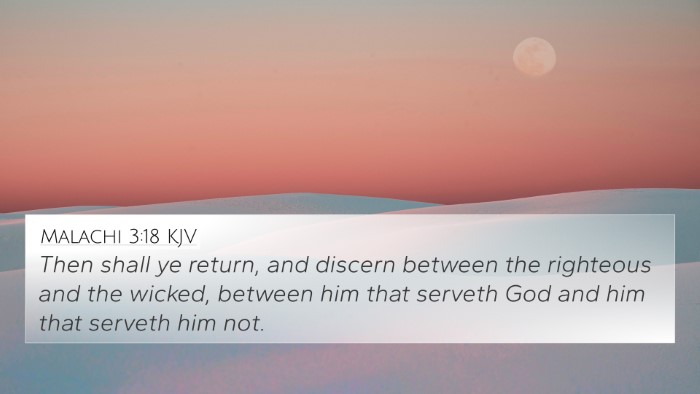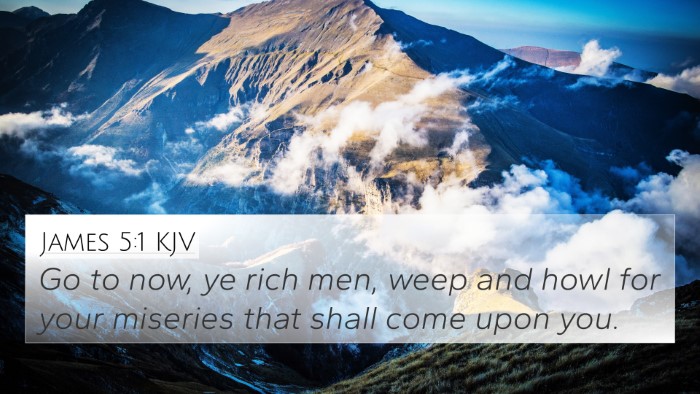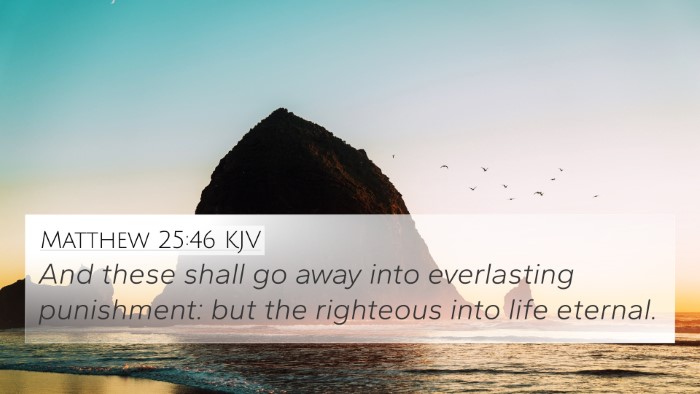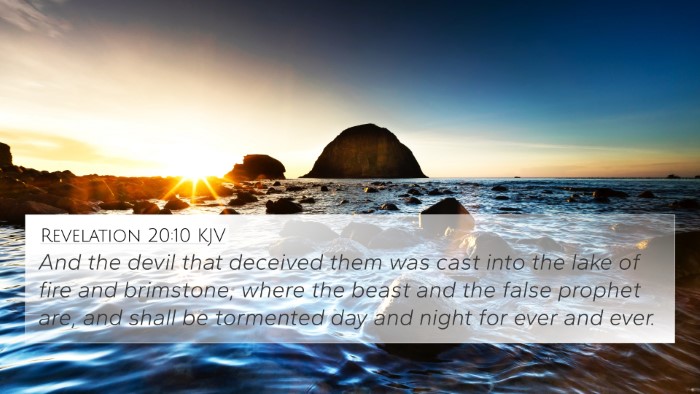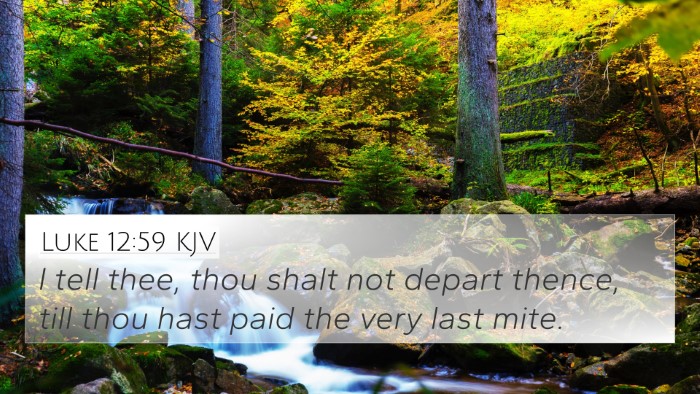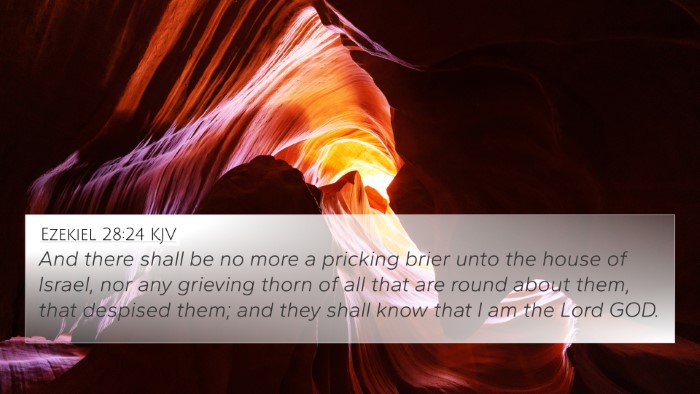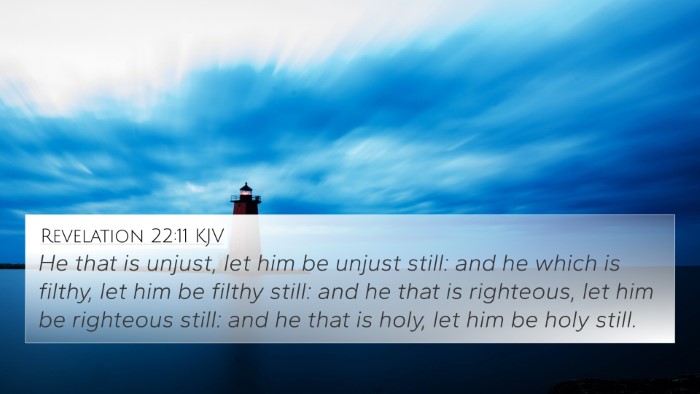Understanding Luke 16:26
Luke 16:26 (KJV): "And beside all this, between us and you there is a great gulf fixed: so that they which would pass from hence to you cannot; neither can they pass to us, that would come from thence."
Summary of the Verse
This verse is a part of Jesus's parable of the rich man and Lazarus, illustrating the irreversible separation between the saved and the lost. The "great gulf" symbolizes the ultimate division that exists after death, emphasizing that one's eternal state is fixed and cannot be altered.
Insights from Public Domain Commentaries
Matthew Henry's Commentary
Matthew Henry explains that this verse highlights the gravity of the situation faced by the rich man in the afterlife. The "great gulf" signifies a final and unbridgeable separation between Heaven and Hell. Henry emphasizes that this separation is a result of one's choices in life and underscores the importance of living righteously to avoid such a fate.
Albert Barnes' Notes on the Bible
Albert Barnes focuses on the implications of the "great gulf" as a representation of God's justice. He notes that this verse teaches that once one has passed into the afterlife, their eternal destiny is sealed. Barnes also points out the hopelessness experienced by the rich man, who realizes that even his desperate pleas for mercy cannot cross that gulf.
Adam Clarke's Commentary
Adam Clarke elaborates on the metaphorical "gulf," expressing that it serves not only as a barrier but also as a symbol of the consequences of earthly actions. Clarke urges readers to reflect on the reality of eternal separation from God and the importance of caring for the needy, as exemplified by Lazarus in the parable.
Relevant Biblical Cross-References
- Luke 16:19-24: The full context of the rich man and Lazarus.
- Matthew 25:41-46: The separation of the righteous and the wicked at the judgment.
- Revelation 20:14-15: The lake of fire and the finality of judgment.
- Hebrews 9:27: It is appointed unto men once to die, but after this the judgment.
- Isaiah 59:2: Sin creates separation from God.
- Luke 12:5: Fear Him which after He hath killed hath power to cast into hell.
- 2 Corinthians 5:10: For we must all appear before the judgment seat of Christ.
Thematic Connections and Interpretations
There are deep thematic connections between Luke 16:26 and several other verses that discuss judgment and the consequences of one's choices. Understanding these connections can enhance one's study of Scripture through a lens of comparative Bible verse analysis.
The "great gulf" is not merely a location; it embodies the ultimate reality of eternal consequences as portrayed throughout the Bible. This emphasizes a call to moral accountability and the urgency of the Gospel message.
Using Cross-References for Deeper Understanding
Tools for Bible cross-referencing can aid in linking Bible scriptures that elucidate the concept of eternal separation. By studying related verses, believers can gain insight into the recurring themes of judgment, mercy, and the choice between life and death in Christ.
How to Use Bible Cross-References
- Identify Related Themes: Pinpoint verses that discuss judgment and mercy alongside Luke 16:26.
- Utilize a Bible Concordance: Look up key terms like "judgment," "eternal life," and "separation."
- Compare with Other Gospels: Analyze similar parables or teachings from Matthew and Mark.
- Engage in Group Studies: Discuss these connections within Bible study groups to deepen understanding.
Conclusion: The Importance of Reflection
In conclusion, Luke 16:26 serves as a powerful reminder of the eternal consequences of our earthly decisions. It calls us to reflect on our lives and the impact we have on others. By utilizing cross-referencing Bible study methods, we can uncover rich layers of meaning and ensure we are living in a way that aligns with the teachings of Christ.
As you study, consider how these verses connect with one another and the broader narrative of Scripture, fostering a deeper understanding of God’s message of salvation and judgment.
